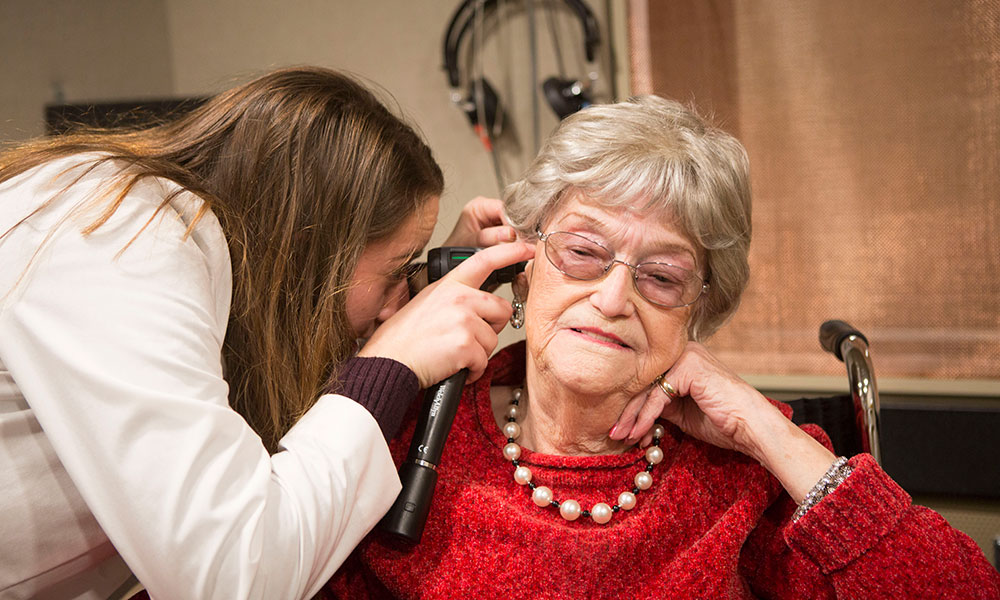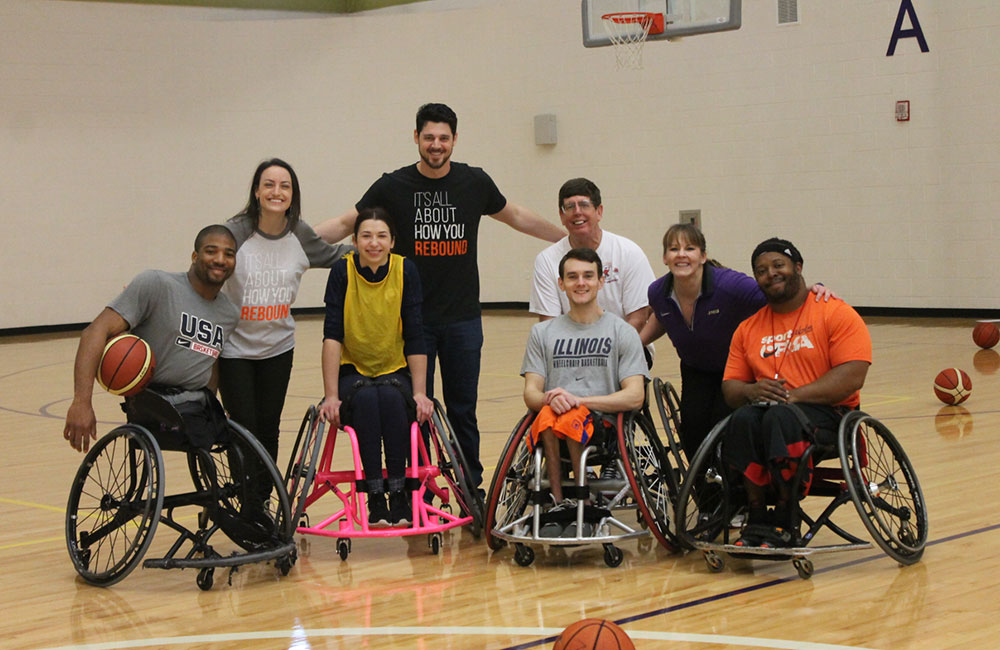With exciting advances in collaborative scholarship, education in health and behavioral studies, and reflective service in community settings, we inspire responsible contributions to our world.
Graduate Programs
- Assessment and Measurement
- Audiology
- Clinical and School Psychology
- Clinical Mental Health Counseling
- College Student Personnel Administration
- Communication Sciences and Disorders
- Counseling and Supervision
- Kinesiology: Exercise Physiology
- Kinesiology, Physical Health Education Teacher Education (PHETE)
- Nursing - M.S.N.
- Nursing - D.N.P.
- Occupational Therapy
- Physician Assistant
- Psychological Sciences
- School Counseling
- School Psychology
- Speech and Language Pathology: Clinical
- Speech and Language Pathology: Clinical (online)
- Sport and Recreation Leadership (see Hart School)

Learning by doing
Do you want to be able to make smart decisions that advance science, health, fitness, behavior, and social welfare? Would you enjoy a career that expands your horizons for contributing to these areas? If so, the academic programs of the College of Health and Behavioral Studies may be perfect for you!

We prepare students through student-centered classes, community-engaged projects, and unique laboratory and field experiences. Close interactions with expert faculty, exemplary learning facilities, partnerships with local agencies and numerous international study experiences are hallmarks of our high-quality, active learning environment.
Read about students enrolled in our programs in Communication Sciences and Disorders, Graduate Psychology, Health Professions, Health Sciences, Kinesiology, Nursing, Psychology, and Social Work. Take a look, as well, at what students are doing through the Academic Centers and Institutes in our College: the Alvin V. Baird Attention and Learning Disabilities Center, the Empowerment3 Center, the Institute for Innovation in Health and Human Services, the McMillan Center for Sport Psychology, and the Morrison Bruce Center.
Highlights

- Dietetics students are all about taking their hands-on learning efforts into local communities.
- JMU Social Work majors know their stuff and love their craft.
- The First Year Research Experience program connects students with faculty research mentors in fascinating ways.
- Through the Institute for Innovation in Health and Human Services’ clinical services that prepare our students for health careers, we contribute to the well-being of over 5,000 clients per year.

